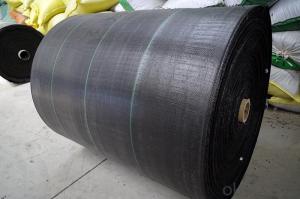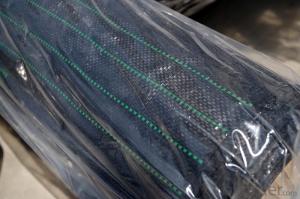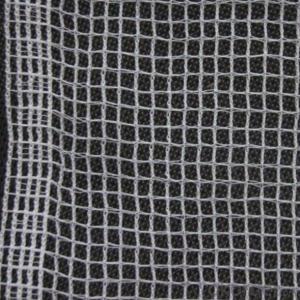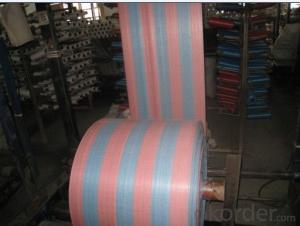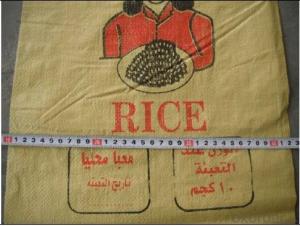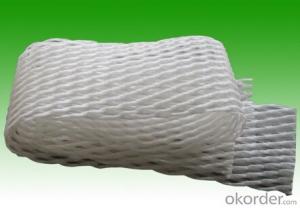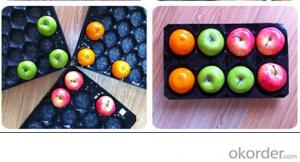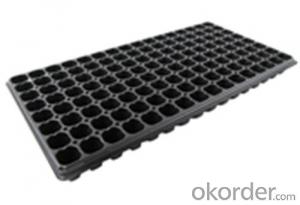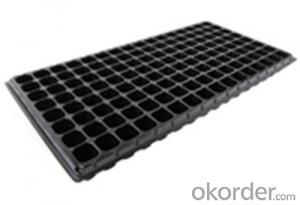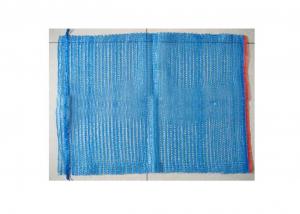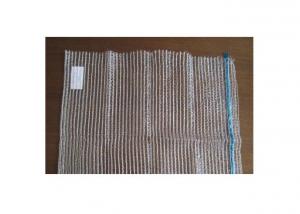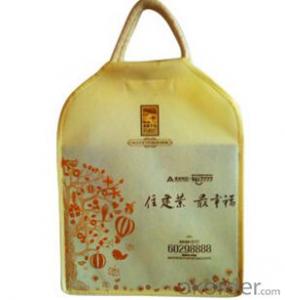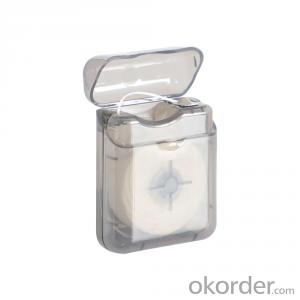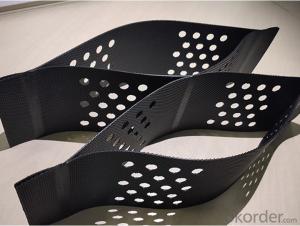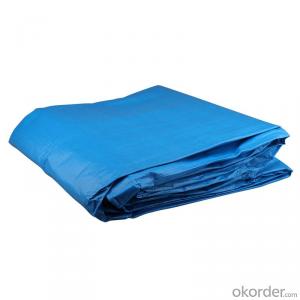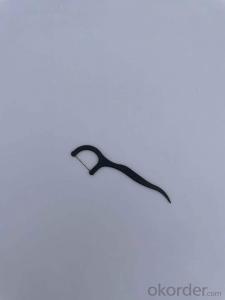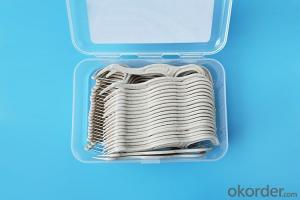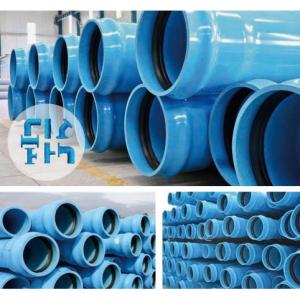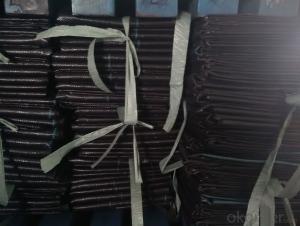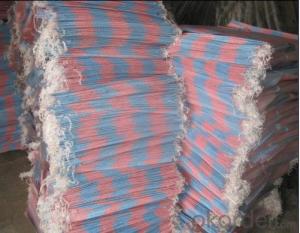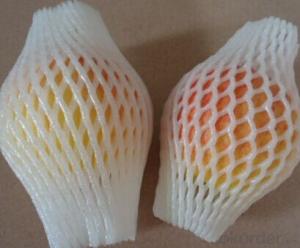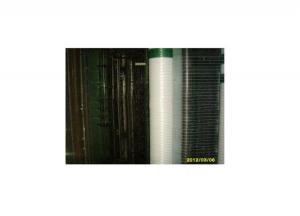PP Fabric Weed Control Membrane for Farm
- Loading Port:
- Shanghai
- Payment Terms:
- TT OR LC
- Min Order Qty:
- 1000 m²
- Supply Capability:
- 200000 m²/month
OKorder Service Pledge
OKorder Financial Service
You Might Also Like
PP Fabric Weed Control Membrane for Farm
Production Description:
Weed Control fabric not only prevents weeds, it encourage root growing by keep soil moist and cool. Made of UVtreated polypropylene,this costeffective weed control fabric features allow the free flow of air,water and nutrients to the soil while blocking sunlight and weeds.This chemical free method for stopping weed grow for years.
Application:
1. Weed block for landscaped garden beds
2. Permeable liners for planters (stops soil erosion)
3. Weed control under wooden decking
4. Geotextile for separating aggregate / soils under walkway blocks or bricks
5. Assists in preventing paving from settling unevenly
6. Landscape fabric prevents soil erosion
Production Specifications:
Material | Woven PP/PE Fabric |
Width | 0.5m-4.4m |
Length | 50m-2500m |
Color | Black/Grass Green/Japser/Black-Green |
Weave | 9*9 to 13*13 |
Weight | 60gsm-180gsm |
U.V. | With or Without U.V. |
Life Span | 3~5 years with U.V. treated |
Feature | Non-Toxic |
Style | Plain |
Production Application:
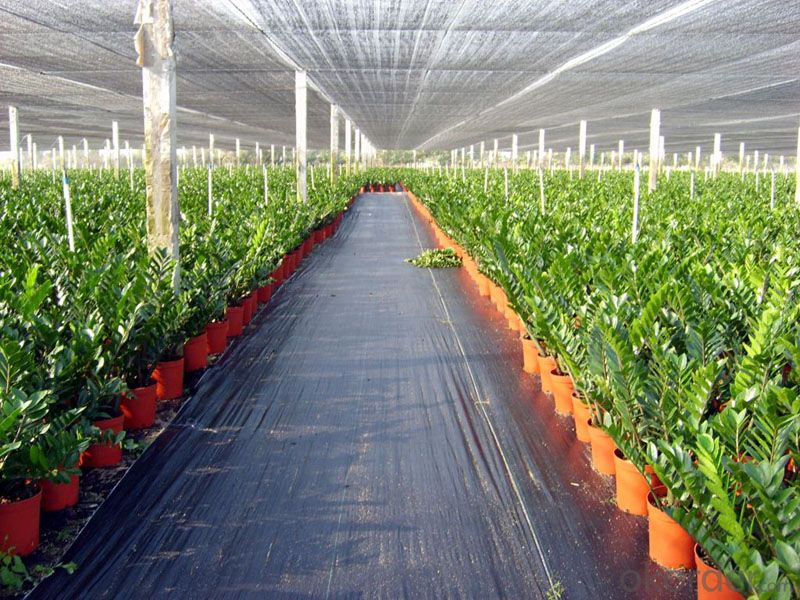
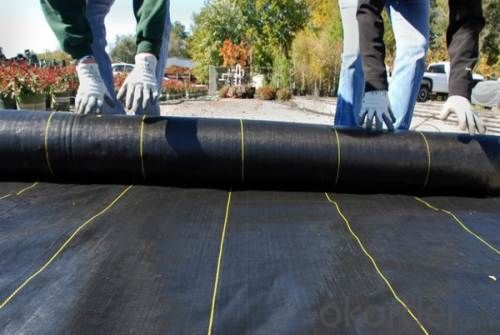
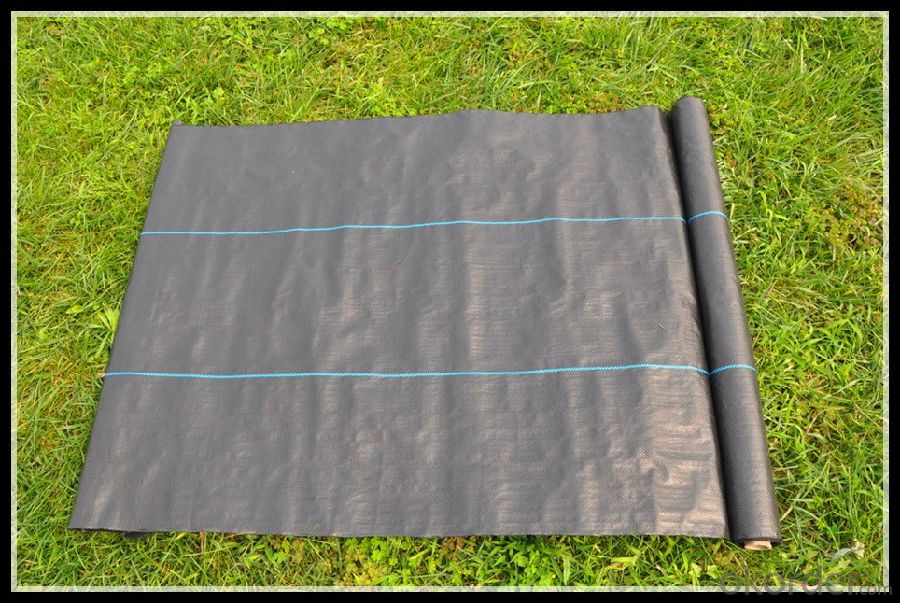
FAQ:
1. Where is your factory located in?
Factory is located in Jiangsu Province, Neat to Shanghai Port.
2. How long have you been in this product production?
We have been in the business more than 10 years,
3. Can we have some sample or trial order before bunk order?
Yes, we can provide you some free samples, and for trial order, we will offer you the lowest price.
- Q:Are nursery trays suitable for starting native wildflowers?
- Yes, nursery trays are suitable for starting native wildflowers. They provide a controlled environment for seed germination and early growth, allowing for optimal conditions such as moisture and temperature control. Additionally, nursery trays offer individual cells or compartments for each seed, preventing overcrowding and facilitating easy transplanting once the seedlings are ready to be moved to a permanent location. Overall, nursery trays are a practical and efficient tool for starting native wildflowers.
- Q:i broke my plastic retainer and the bottom is in three peices and the top is cracked. i have no idea how it broke and im stuck wearing my metal one now
- Yes, plastic retainers (from my experience) are junk. They break and crack and I personally don't think they 'hold' teeth in place very well. Stick with your metal one. It's better to use anyway in the long run. It'll hold your teeth better and it's better quality. I had to get braces for a second time because those plastic retainers didn't hold my bottom teeth. Hang onto that metal retainer. :) Good luck!
- Q:What are some ground cover plants that provide winter interest?
- Some ground cover plants that provide winter interest include wintergreen, hellebores, snowdrops, winter jasmine, and creeping phlox. These plants either retain their foliage or produce colorful berries or flowers during the winter season, adding visual appeal to the landscape.
- Q:What are the different methods of installing agricultural plastic products?
- There are several methods of installing agricultural plastic products, including manual installation, mechanical installation, and use of specialized machinery. Manual installation involves physically laying the plastic by hand and securing it with stakes or weights. Mechanical installation uses equipment such as plastic layers or mulch layers to mechanically lay the plastic on the ground. Specialized machinery is also used, such as plastic laying machines or drip irrigation systems, which can automate the installation process for larger agricultural areas.
- Q:What are the benefits of using plastic rainwater harvesting tanks?
- There are several benefits of using plastic rainwater harvesting tanks. Firstly, plastic tanks are lightweight and easy to install, making them convenient for residential use. Additionally, plastic tanks are durable and resistant to corrosion, ensuring a longer lifespan. They are also affordable compared to other materials, making rainwater harvesting more accessible to a wider population. Moreover, plastic tanks are non-toxic and hygienic, ensuring the stored rainwater remains safe for various uses such as irrigation or washing. Lastly, plastic tanks can be easily customized and come in various sizes, allowing for flexibility in meeting specific water storage needs.
- Q:Can agricultural plastic products be used in microgreen farming?
- Yes, agricultural plastic products can be used in microgreen farming. Plastic products such as trays, containers, and covers can be utilized to create a controlled environment for growing microgreens. These products help to retain moisture, regulate temperature, and protect the delicate plants during their growth cycle. Additionally, plastic materials can be easily cleaned and reused, making them a practical choice for microgreen farmers.
- Q:Can plastic bags be dealt with at present?
- Strengthen the environmental education of students, also aims to promote environmental knowledge to the whole society, so many suggestions for school to the society to carry out public welfare activities, such as in the year April 22nd earth day, world environment day June 5th, students took to the streets and the importance of environmental protection knowledge, only the whole society in terms of environmental protection, will fundamentally the prevention and control of white pollution.
- Q:I am trying to use less plastics. I have been reading how bad plastic is for you and I want to know what ways you have gotten away from plastics in your life.
- i do no longer think of that i take advantage of plastic much less, yet I do re-use it extra. I nonetheless use plastic water bottles, yet i take advantage of a similar bottles lower back and lower back. i think of it fairly is extra beneficial than employing a tumbler bottle because of the toughness. If I drop the plastic bottle, no great deal. Drop a tumbler one and it would wreck, depart shattered glass in the back of, and that i might ought to replace it (employing up components). BTW, it would not help the reason to apply deceptive terminology. Calling 'trash-weighted down water approximately two times the dimensions of Texas' an island isn't precise. 'Island' implys a fantastic mass that ought to be stood on, photographed from orbit, and positioned on Google Earth. it fairly is an area of water the dimensions of Texas that has excessive quantities of plastics suspended in it. it somewhat isn't any longer a fantastic mass of plastic the dimensions of Texas. asserting so, by employing the term 'island', does make you sound like a crackpot.
- Q:Can agricultural plastic be used for hydroponic nutrient solutions?
- Yes, agricultural plastic can be used for hydroponic nutrient solutions. Agricultural plastic, such as polyethylene or polypropylene, can be used to create hydroponic nutrient reservoirs or containers. These plastics are generally considered safe for holding nutrient solutions, as they are resistant to chemical leaching and can withstand the pH and temperature requirements of hydroponic systems. However, it is important to ensure that the plastic used is food-grade and free from any harmful chemicals that could potentially contaminate the nutrient solution and affect plant growth.
- Q:I just found a plastic knife in one of my drawers, and written on it in raised letters is 100% Compostable.So, from that I understand that if I throw this knife into a compost heap, it will eventually become mulch...but if it stays in my drawer, will in biodegrade on its own? Or will it take hundreds of years?
- It is a plastic made from corn starch or like the previous answerer stated, hemp. It won't disintegrate in your drawer, but it can break down over time (some plastics about a year), which regular plastics don't (half life of closer to 300 years).
1. Manufacturer Overview |
|
|---|---|
| Location | |
| Year Established | |
| Annual Output Value | |
| Main Markets | |
| Company Certifications | |
2. Manufacturer Certificates |
|
|---|---|
| a) Certification Name | |
| Range | |
| Reference | |
| Validity Period | |
3. Manufacturer Capability |
|
|---|---|
| a)Trade Capacity | |
| Nearest Port | |
| Export Percentage | |
| No.of Employees in Trade Department | |
| Language Spoken: | |
| b)Factory Information | |
| Factory Size: | |
| No. of Production Lines | |
| Contract Manufacturing | |
| Product Price Range | |
Send your message to us
PP Fabric Weed Control Membrane for Farm
- Loading Port:
- Shanghai
- Payment Terms:
- TT OR LC
- Min Order Qty:
- 1000 m²
- Supply Capability:
- 200000 m²/month
OKorder Service Pledge
OKorder Financial Service
Similar products
New products
Hot products
Related keywords
